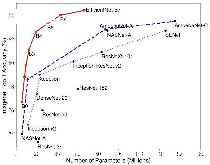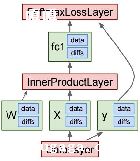

'''
三维卷积
:return:
h, w, c = image.shape
x, y, z = filter.shape
height_new = h - x + 1 ?# 输出 h

width_new = w - y + 1 ?# 输出 w
image_new = np.zeros((height_new, width_new), dtype=np.float)
for i in range(height_new):
for j in range(width_new):
r = np.sum(image[i:i+x, j:j+x, 0] * filter[:,:,0])

g = np.sum(image[i:i+y, j:j+y, 1] * filter[:,:,1])
image_new[i, j] = np.sum([r,g,b])
return image_new
用keras框架较为方便
首先安装anaconda,然后通过pip安装keras
以下转自wphh的博客.
GPU?run?command:
CPU?run?command:
python?cnn.py
这份代码是keras开发初期写的,当时keras还没有现在这么流行,文档也还没那么丰富,所以我当时写了一些简单的教程.
现在keras的API也发生了一些的变化,建议及推荐直接上keras.io看更加详细的教程.
#导入各种用到的模块组件
from?__future__?import?absolute_import
from?__future__?import?print_function
from?keras.preprocessing.image?import?ImageDataGenerator
from?keras.models?import?Sequential
from?keras.layers.core?import?Dense,?Dropout,?Activation,?Flatten
from?keras.layers.advanced_activations?import?PReLU
from?keras.optimizers?import?SGD,?Adadelta,?Adagrad
from?keras.utils?import?np_utils,?generic_utils
from?six.moves?import?range
from?data?import?load_data
import?random
import?numpy?as?np
#加载数据
data,?label?=?load_data()
#打乱数据
index?=?[i?for?i?in?range(len(data))]
random.shuffle(index)
data?=?data[index]
label?=?label[index]
print(data.shape[0],?'?samples')
label?=?np_utils.to_categorical(label,?10)
###############
#开始建立CNN模型
#生成一个model
model?=?Sequential()
#border_mode可以是valid或者full,具体看这里说明:
#激活函数用tanh
model.add(Activation('tanh'))
model.add(Activation('relu'))
#全连接层,先将前一层输出的二维特征图flatten为一维的.
model.add(Flatten())
#Softmax分类,输出是10类别
model.add(Dense(10,?init='normal'))
model.add(Activation('softmax'))
#############
#开始训练模型
##############
#使用SGD?+?momentum
#model.compile里的参数loss就是损失函数(目标函数)
model.compile(loss='categorical_crossentropy',?optimizer=sgd,metrics=["accuracy"])
#调用fit方法,就是一个训练过程.?训练的epoch数设为10,batch_size为100.
"""
#使用data?augmentation的方法
#一些参数和调用的方法,请看文档
datagen?=?ImageDataGenerator(
featurewise_center=True,?#?set?input?mean?to?0?over?the?dataset
samplewise_center=False,?#?set?each?sample?mean?to?0
zca_whitening=False,?#?apply?ZCA?whitening
horizontal_flip=True,?#?randomly?flip?images
vertical_flip=False)?#?randomly?flip?images
#?compute?quantities?required?for?featurewise?normalization?
#?(std,?mean,?and?principal?components?if?ZCA?whitening?is?applied)
datagen.fit(data)
for?e?in?range(nb_epoch):
print('Epoch',?e)
print("Training...")
#?batch?train?with?realtime?data?augmentation
progbar?=?generic_utils.Progbar(data.shape[0])
for?X_batch,?Y_batch?in?datagen.flow(data,?label):
loss,accuracy?=?model.train(X_batch,?Y_batch,accuracy=True)
progbar.add(X_batch.shape[0],?values=[("train?loss",?loss),("accuracy:",?accuracy)]?)
①.、#导入各种用到的模块组件
from __future__ import absolute_import
from __future__ import print_function
from keras.preprocessing.image import ImageDataGenerator
from keras.models import Sequential
from keras.layers.core import Dense, Dropout, Activation, Flatten
from keras.layers.advanced_activations import PReLU
from keras.optimizers import SGD, Adadelta, Adagrad
from keras.utils import np_utils, generic_utils
from six.moves import range
from data import load_data
import random
import numpy as np
index = [i for i in range(len(data))]
data = data[index]
label = label[index]
print(data.shape[0], ' samples')
label = np_utils.to_categorical(label, 10)
model = Sequential()
model.add(Dense(10, init='normal'))
#使用SGD + momentum
model.compile(loss='categorical_crossentropy', optimizer=sgd,metrics=["accuracy"])
#调用fit方法,就是一个训练过程. 训练的epoch数设为10,batch_size为100.
#使用data augmentation的方法
datagen = ImageDataGenerator(
featurewise_center=True, # set input mean to 0 over the dataset
samplewise_center=False, # set each sample mean to 0
zca_whitening=False, # apply ZCA whitening
horizontal_flip=True, # randomly flip images
vertical_flip=False) # randomly flip images
# compute quantities required for featurewise normalization
# (std, mean, and principal components if ZCA whitening is applied)
for e in range(nb_epoch):
print('Epoch', e)
# batch train with realtime data augmentation
progbar = generic_utils.Progbar(data.shape[0])
for X_batch, Y_batch in datagen.flow(data, label):
loss,accuracy = model.train(X_batch, Y_batch,accuracy=True)
progbar.add(X_batch.shape[0], values=[("train loss", loss),("accuracy:", accuracy)] )
全部用文件IO的话可以这样: matlab把所有参数输出到一个文件里,然后用system命令调python脚本.python脚本读文件做计算结果再写文件.最后matlab再读文件得到结果. 假设python脚本的用法是: python xxx.py in.txt out.txt 则matlab调用命令...
以上就是土嘎嘎小编为大家整理的卷积核函数python相关主题介绍,如果您觉得小编更新的文章只要能对粉丝们有用,就是我们最大的鼓励和动力,不要忘记讲本站分享给您身边的朋友哦!!